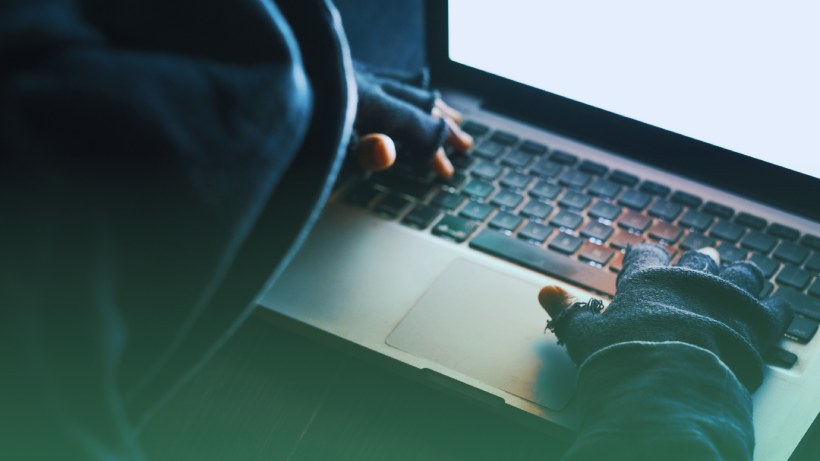Top 4 Information Security Risks of Working from Home
In December 2020, Upwork’s Future of Workplace Pulse Report predicted that one in every four Americans would be working remotely in 2021. Expect the number to rise to 36.2 million as employers embrace the numerous benefits of remote working. Unfortunately, working from home carries with it information risks which, if ignored, burdens you with reputational and financial losses. Reputational damages could hurt your credit ratings resulting in higher insurance premiums. You will also have to improve infrastructure and software that will cost you at least $120,000 per cybersecurity incident.
So, let’s take you through the top 4 risks and enlighten you on how to mitigate them.
Accessing Company Data Using Personal Devices When Working From Home
As companies appreciate the cost-savings that BYOD (Bring Your Own Devices) facilitates, they fail to comprehend the risks that come with such personal devices. Having employees use their smartphones, tablets, and other devices to access corporate data can create problems because they are most likely unsecured.
Remote working is not limited to working from home alone; whether traveling or grabbing a coffee, staff still want to meet deadlines and will work from wherever they are. As a result, they will be tempted to use public Wi-Fi, which is insecure. Even if your staff have private home networks, hackers still find a way around the inadequate security measures.
An employee can be tricked into thinking they are accessing a secure network when a hacker manipulates it to mimic the secure network’s name that the employee usually uses. We encourage employers with remote working employees to instruct them to access company data only on secure networks and avoid using public Wi-Fi.
Personal Digital Assistants Eavesdropping
It is not just the smartphones and tablets that put your corporate data at risk of being exposed; Ovum predicted that by 2021, there would be more digital assistants than people. While we appreciate Alexa and Siri for making our lives easier, they come at a cost. Such devices always listen in on your conversations when turned on. Thus, they record every conversation on the phone that divulges company secrets or other sensitive information.
Many companies realize the risks that such personal digital assistants have and therefore prohibit employees from using them. Unfortunately, those working from home do not have any supervision, and staff can turn them on while working. Researchers discovered that digital assistants could be hacked remotely using a laser light beam. Attackers can send voice commands to do whatever they please, which will prompt users to input their login credentials. Alternatively, attackers can access a user’s voice history to get personal information, including passwords, usernames, and banking data.
You can, however, mitigate such threats by having your employees know that they should not have their personal digital assistants turned on wherever they are working. Also, adding an extra layer of authentication helps; for instance, having the device ask the user a question before sending voice commands is effective.
Lack of User Training
Humans have already been identified as the largest cybersecurity threat because they lack the necessary information security skills. An employee who doesn’t know how hackers can launch attacks on the system will keep exposing your data hackers. Therefore, besides instructing employees to regularly change passwords and only use secure networks to access company systems, educate your employees on the importance of doing so.
Those working from home may not understand phishing attacks, yet are recognized as the primary cause of data breaches. Since phishing scams use personal and work emails, your data is not safe even when employees work remotely using personal devices. Unfortunately, most employers do not have training focusing on the most common threats.
Consequently, the company wastes resources on redundant training and continues exposing the systems to cybersecurity vulnerabilities. Training should include phishing email recognition, proper software use and updates, and multi-factor authentication of emails and personal digital assistants. Employees should also be aware of cybersecurity policies upon recruitment.
Social Engineering
In his book, “Art of Deception,” Kevin Mitnick, a reformed computer hacker, shares how humans are the weakest links in a security system. He explains how a social engineer can trick employees into revealing sensitive information, and he speaks from experience because that was what he used on his victims.
Social engineering exploits human psychology; therefore, cybercriminals do not have to be tech-savvy to penetrate your organizations. A simple call in which someone poses to be an IT service provider and asks all login credentials is enough to enable a cybercriminal to penetrate your systems. Others pretend to be executives, fellow employees, or from a law enforcement agency.
The worst thing about social engineering is you can’t install a firewall or other software and hardware to prevent hackers’ attempts. Therefore, we advise enforcing strict IT security policies.
You can also have the employees trained to recognize the various ways that cybercriminals can trick them into divulging information. Update the training because technology keeps advancing.
Working From Home Solutions
Currently, you don’t have a choice but to allow staff to continue working from home, but that does not mean you should continue putting your security at risk. You should consult cybersecurity professionals to encrypt employee devices. V&C Solutions is an IT services provider offering managed IT services that will equip your employees with skills to mitigate security threats and risks.
With our cloud services, we ensure that you stay on top of your remote workers. Your cybersecurity is our priority, and we do everything to guarantee it. Our virtual desktops for your remote workers enhance information security. Additionally, our Microsoft cloud services provide staff with secure remote access to the company’s network. If you operate in San Jose or the San Francisco Bay Area, you are in luck because we will help put your information security worries to rest. Contact us today to get a free immediate quote for any IT service and support you need.




